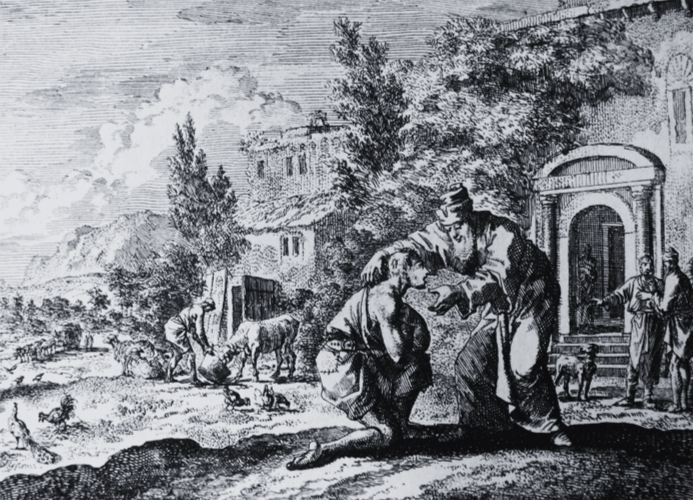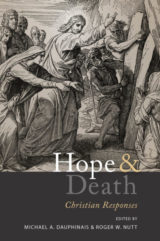What is Hope and How is it Different from Faith?
By Clement Harrold

Hope is surely the most neglected of the theological virtues. Less intuitive than its two sisters, faith and charity, it can be difficult to define and easy to overlook. To make matters worse, the relationship between hope and faith is often a source of confusion. After all, if faith already gives us the assurance that God is real and His plan is good, then what role is hope supposed to play in the Christian life? What makes hope distinctive?
In answering these questions, it is worth recognizing from the outset that faith and hope are intimately connected virtues. Indeed, faith is the basis for hope, and the latter cannot exist without the former. In his 2007 encyclical Spe salvi, for example, Pope Benedict XVI spoke of “the present-day crisis of faith which is essentially a crisis of Christian hope” (§17). In other words, modernity’s loss of faith is also a loss of hope. At the same time, it is important to recognize that St. Paul gives us three theological virtues for a reason; so while faith and hope may be related, we know they are not the same thing (see 1 Cor 13:13).
When it comes to defining hope, it is important to distinguish between hope as a passion (or emotion) and hope as a theological virtue. As human beings, we talk all the time about hoping for this or that outcome—better weather, a speedy recovery, a salary raise, and so on. Hope in this rudimentary sense is morally neutral. It is a passion within the soul which can be oriented towards both good and bad ends; someone might hope for a good thing, like a friend’s healing, or for an evil thing, like a successful abortion procedure.
Outside of a theological perspective, therefore, there is no reason to regard hope as a virtue. It is only the supernaturalization of hope, as the philosopher Josef Pieper explains, which makes it a habitual disposition towards the good. Placed in a theological framework, hope transcends the passions and is transformed into a virtue of supernatural proportions; it now shines forth as an essential component in the ennobling and perfecting of man’s nature, enabling him to reach heights of self-realization that far exceed his own natural abilities. The Catechism of the Catholic Church defines it this way:
Hope is the theological virtue by which we desire the kingdom of heaven and eternal life as our happiness, placing our trust in Christ's promises and relying not on our own strength, but on the help of the grace of the Holy Spirit. (§1817)
Properly understood, Christian hope is a gift from God which fosters within us a deep and appropriate desire for Him, and fuels us on our journey towards Him.
Along these lines, St. Thomas Aquinas clarifies that the object of hope (i.e. eternal beatitude in heaven) is something arduous but possible to obtain. This is an important perspective which helps differentiate hope from mere optimism. Optimism expects everything to go well. Hope, by contrast, is often born of suffering (see Rom 5:3-5). Hope understands that many intense hardships and severe trials may yet stand between us and heaven, yet it gives us the confidence that even these can be overcome provided we cling to Christ. As the Catechism goes on to explain, hope “keeps man from discouragement; it sustains him during times of abandonment; it opens up his heart in expectation of eternal beatitude” (§1818).
Hope is thus an integral part of the Christian life, because without hope we are doomed to falter and fail in our pilgrim journey. Theological hope safeguards the soul against the sin of presumption as well as the opposite and even greater sin of despair. According to Pieper, hope does this by cultivating both magnanimity and humility in the soul. These seemingly contradictory qualities in fact work together to instill a spiritual confidence in the heart of the Christian.
Even when the world appears increasingly evil and the Church feels rampant with corruption, our hope gives us the assurance that God is in control, the darkness will not prevail, and our salvation is still guaranteed, provided we remain faithful to Him. Hope is magnanimous enough to believe in the power of divine grace, yet humble enough to continue to pray for it. In this hope-filled Christian vision, the sufferings of our present life become not just tolerable, but redemptive: “[S]uffering—without ceasing to be suffering—becomes, despite everything, a hymn of praise” (Spe salvi §37).
But how is this hope different from faith? Once again, we must remember that faith and hope are deeply interwoven, yet they aren’t identical. Whereas faith draws us to the truth of God, it is hope which propels us towards His goodness. Christian hope is rooted in the recognition that our wills require healing no less than our intellects. Thus the ancient Greek philosopher Plato was wrong when he asserted that all vice is reducible to ignorance.
Many times in life we know something is wrong, but we do it anyway. It’s one thing to know that a better diet and more exercise would improve our quality of life, for example, but it’s quite another thing to muster the courage and resolve to actually take that difficult step of leading a healthier lifestyle. Frequently it happens that even when our intellect is well formed, still our will remains desperately weak.
If faith is a divine blood transfusion for our intellect, then hope is the same for our will. Without hope, our faith risks becoming sterile, inanimate, lifeless, and discouraged. Faith without hope is an exposed and endangered faith. Indeed, faith without hope is exactly the kind of lifeless faith which St. James warns about: “faith by itself, if it has no works, is dead” (Jas 2:17).
When our faith is devoid of hope, we inevitably slide into presumption or despair, and eventually we lose our faith altogether. Hope is therefore essential for sustaining the life of the Christian, empowering us to (in Aquinas’s phrase) “lean on” God’s assistance and allow Him to guide us through the dark valley. Yes, faith is the bedrock of the theological virtues; but it is hope which is the “sure and steadfast anchor of the soul” (Heb 6:19).
Nobody can deny that today’s world is experiencing a profound crisis of hope. Just as hope was the distinguishing mark of the early Christians against a pagan backdrop of cosmic despair, so today we must reestablish this virtue’s central role in our lives. Here we find encouragement in St. Thomas Aquinas, who reminds us that Christian hope is never a solo affair. We ought to hope for the salvation of our brothers and sisters, with whom we are united in charity, and we should likewise hope in the intercession of the saints, who serve as God’s chosen instruments in guiding us to our homeland of heaven.
In this respect, we find no greater intercessor than Our Lady. On the stormy sea of life, she is “our life, our sweetness and our hope.” In our darkest moments, we must remember that Mother Mary stands with us in all our trials, a constant source of encouragement continually guiding us towards the healing presence of her divine Son.
Further Reading:
Benedict XVI, Spe salvi (2007)
Josef Pieper, Faith, Hope, Love (Ignatius Press, 1997)
Clement Harrold is a graduate student in theology at the University of Notre Dame. His writings have appeared in First Things, Church Life Journal, Crisis Magazine, and the Washington Examiner. He earned his bachelor's degree from Franciscan University of Steubenville in 2021.
You Might Also Like

Paul famously challenges his readers in 1 Corinthians, “If for this life only we have hoped in Christ, we are of all men most to be pitied.” What does it mean to hope in Christ for the life to come? How can we intellectually defend such hope in the midst of secularist and materialist trends so prevalent in contemporary society? Even if we believe as Christians in eternal life, how do we find meaning in such hope when the injustices of the world and our own suffering often loom so large?
Drawing primarily upon the witness of biblical revelation and its reception and formulation in the teachings of Thomas Aquinas, the essays in Hope & Death: Christian Responses answer contemporary questions related to how Christians might face suffering and death with hopeful minds and hearts. The essays recover Christian hope in three main parts: what hope reveals about God’s nature and his providence, how hope responds to and clarifies the meaning of human suffering, and the way in which all hope draws human beings to an end beyond this world.

